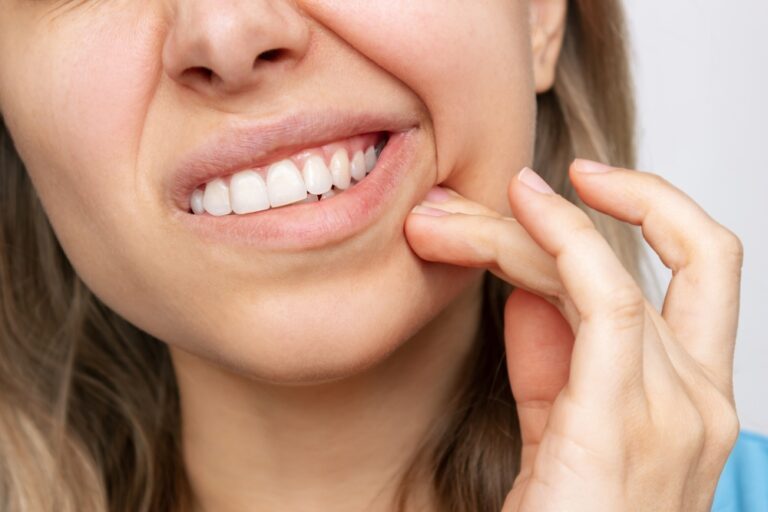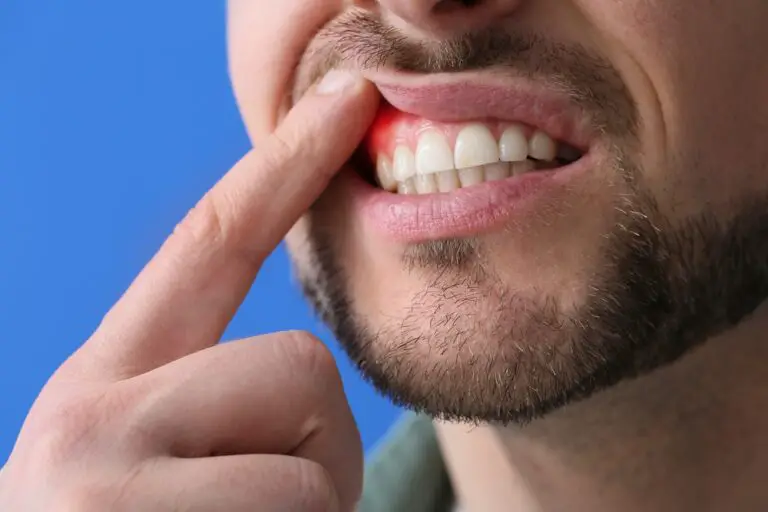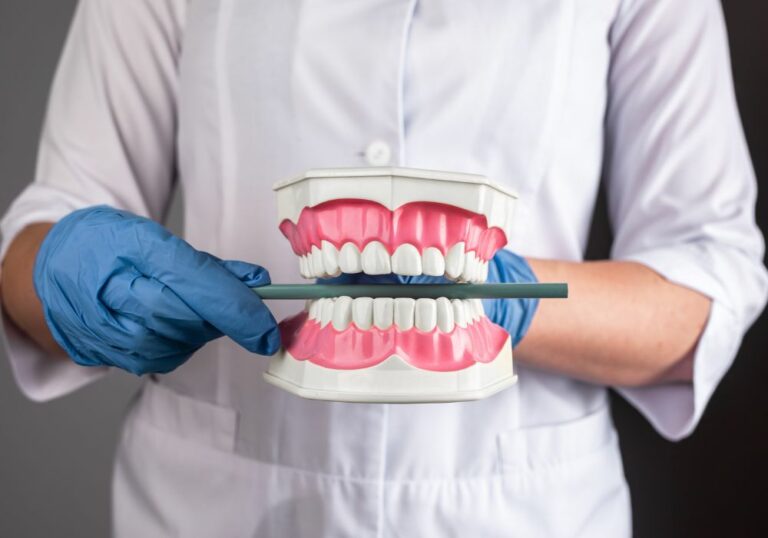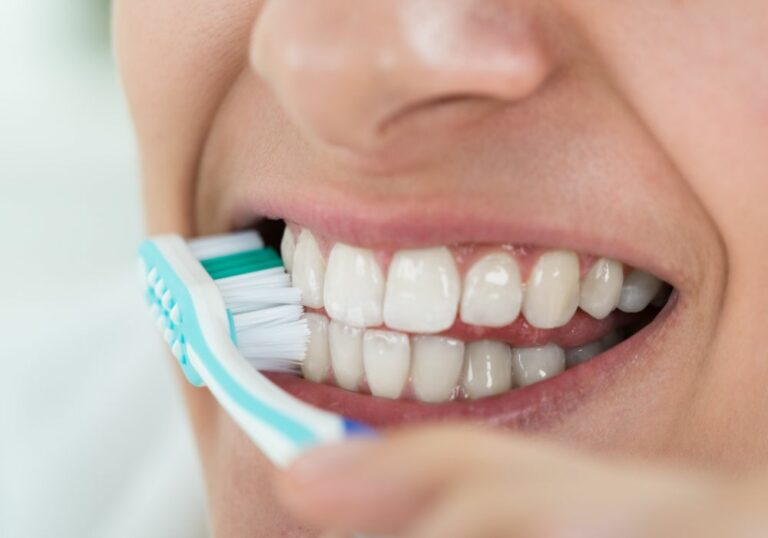Looking for ways to whiten your teeth at home without sensitivity? Many people desire a brighter smile, but the thought of experiencing tooth sensitivity can be a major deterrent. Fortunately, there are several effective and safe methods for achieving a whiter smile without causing discomfort.
One of the most popular methods for at-home teeth whitening is using hydrogen peroxide. This natural bleaching agent can break down color-causing molecules and remove stains from the teeth. However, it’s important to use a low concentration of hydrogen peroxide to avoid damaging the tooth enamel and causing sensitivity. Another option is using baking soda, which can gently remove surface stains and whiten teeth without causing sensitivity.
Understanding Tooth Sensitivity
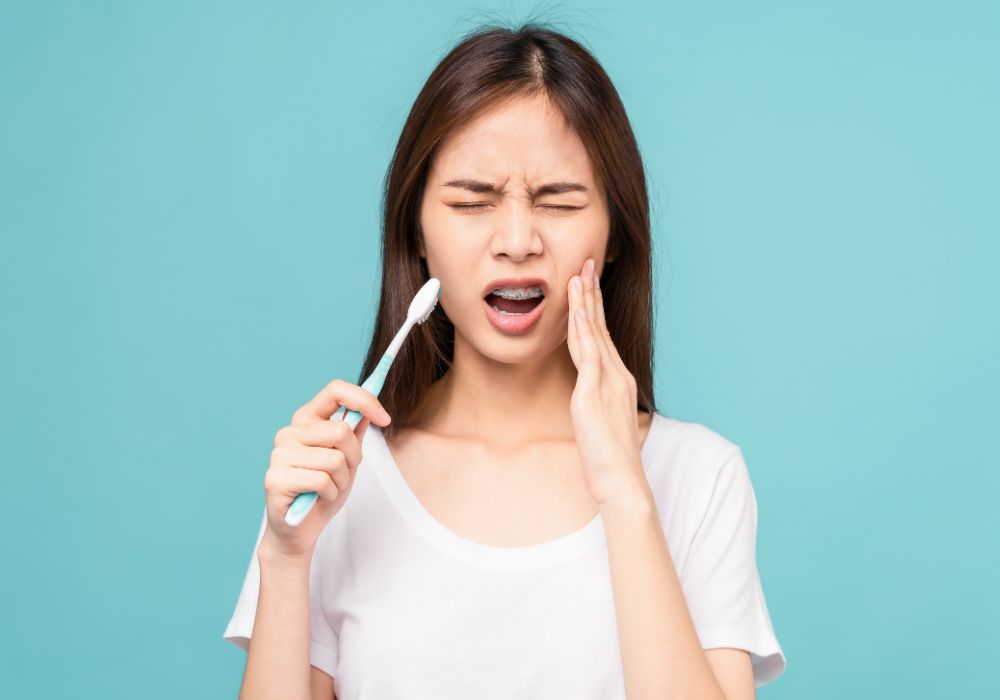
If you’ve ever experienced a sharp pain in your teeth while eating or drinking something hot or cold, you know how uncomfortable tooth sensitivity can be. Understanding the causes of tooth sensitivity can help you take steps to prevent it and enjoy a brighter, whiter smile without pain.
Causes of Tooth Sensitivity
Tooth sensitivity can have several causes, including:
- Tooth decay or cavities
- Gum disease or recession
- Worn enamel from brushing too hard or grinding your teeth
- Cracked or chipped teeth
- Exposed tooth roots due to gum recession or aggressive brushing
When the protective enamel on your teeth is worn away or your gums recede, the underlying layer of dentin is exposed. Dentin contains tiny tubules that lead to the nerves in your teeth, which can cause pain or sensitivity when exposed to hot, cold, sweet, or acidic foods and drinks.
Effects of Teeth Whitening on Sensitivity
Teeth whitening can cause temporary sensitivity in some people, especially those with preexisting tooth sensitivity or gum recession. The bleaching agents used in many whitening products can irritate the nerves in your teeth, causing sensitivity or discomfort.
However, there are steps you can take to minimize tooth sensitivity while whitening your teeth at home. Using a toothpaste designed for sensitive teeth and avoiding extremely hot or cold foods and drinks can help reduce sensitivity. You may also want to consider using a whitening product with a lower concentration of bleaching agents or switching to a product that uses carbamide-peroxide instead of hydrogen peroxide, which can be less irritating to sensitive teeth.
By understanding the causes of tooth sensitivity and taking steps to prevent and manage it, you can enjoy a brighter, whiter smile without discomfort.
Preventing Tooth Sensitivity
If you’re looking to whiten your teeth at home without sensitivity, it’s important to take steps to prevent tooth sensitivity before it starts. Here are some tips to help you prevent tooth sensitivity:
Proper Oral Hygiene
One of the best ways to prevent tooth sensitivity is to practice good oral hygiene. This includes brushing your teeth twice a day with a soft-bristled toothbrush and fluoride toothpaste, flossing daily, and using an antiseptic mouthwash.
When brushing your teeth, be sure to use gentle circular motions and avoid brushing too hard or too aggressively. Brushing too hard can wear away the enamel on your teeth, which can lead to tooth sensitivity.
Dietary Habits
Your diet can also play a role in preventing tooth sensitivity. Avoid consuming acidic foods and drinks, such as citrus fruits, soda, and sports drinks, as they can erode the enamel on your teeth.
Instead, opt for foods that are high in calcium and phosphorus, such as dairy products, leafy greens, and nuts. These foods can help strengthen your teeth and protect them from sensitivity.
In addition, try to limit your intake of sugary foods and drinks, as they can lead to tooth decay and gum disease, which can also cause tooth sensitivity.
By practicing good oral hygiene and making healthy dietary choices, you can help prevent tooth sensitivity and keep your teeth healthy and white.
At-Home Teeth Whitening Methods

If you’re looking to whiten your teeth at home without sensitivity, there are a few methods you can try. In this section, we’ll go over some natural whitening methods and over-the-counter products that can help you achieve a brighter smile.
Natural Whitening Methods
- Oil Pulling: Swishing coconut oil or sesame oil in your mouth for 10-15 minutes can help remove surface stains on your teeth. Spit the oil out into a trash can (not the sink, as it can clog pipes) and rinse your mouth with water.
- Baking Soda and Hydrogen Peroxide: Mix a small amount of baking soda with hydrogen peroxide to create a paste. Brush your teeth with the paste for 2-3 minutes, then rinse your mouth with water. Be careful not to use this method too often, as it can be abrasive on your teeth.
- Fruit Peels: Rubbing the inside of a banana peel or orange peel on your teeth for a few minutes can help remove surface stains. Rinse your mouth with water afterwards.
Over-The-Counter Products
- Whitening Toothpaste: There are many whitening toothpastes available that can help remove surface stains on your teeth. Look for toothpastes that contain baking soda or hydrogen peroxide.
- Whitening Strips: These thin, flexible strips are coated with a whitening gel and are placed directly on your teeth. Follow the instructions on the package carefully, and be careful not to use them too often, as they can cause sensitivity.
- Whitening Kits: These kits typically include a whitening gel and a mouth tray that you can mold to fit your teeth. Follow the instructions carefully, and be sure to choose a kit that is specifically designed for sensitive teeth.
Remember, it’s important to maintain good oral hygiene habits in addition to using these whitening methods. Brush your teeth twice a day, floss daily, and visit your dentist regularly for cleanings and checkups.
Maintaining Your Bright Smile
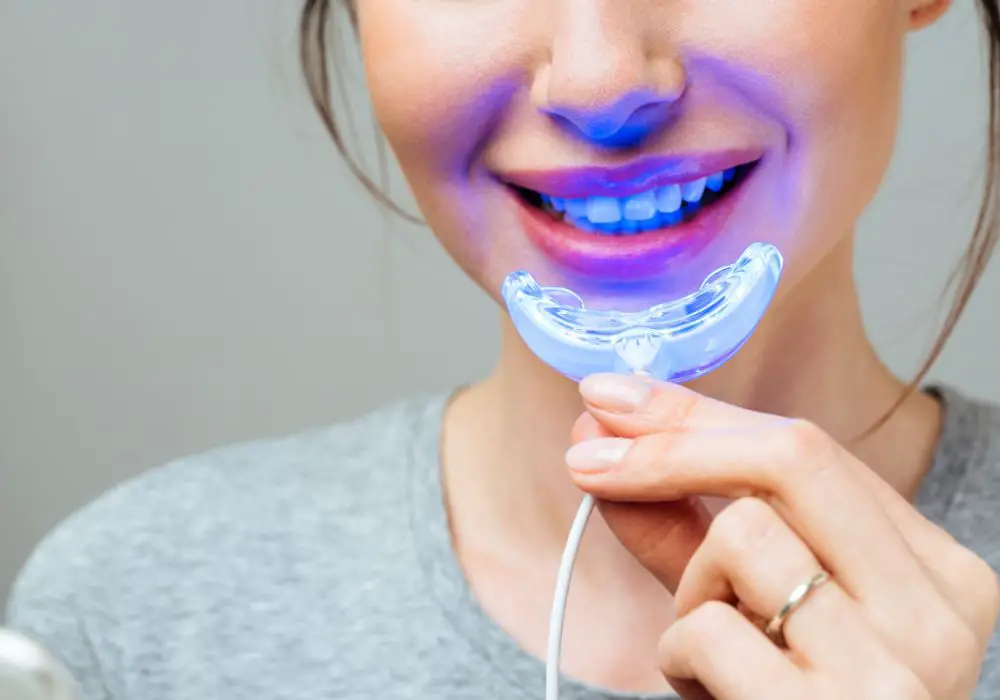
To keep your teeth looking their best, it’s important to maintain good oral hygiene habits and avoid foods and drinks that can stain your teeth. Here are some tips to help you maintain your bright smile:
Regular Dental Check-Ups
Regular dental check-ups are essential for maintaining good oral health. During your check-up, your dentist will examine your teeth and gums for any signs of decay, gum disease, or other problems. They will also clean your teeth to remove any plaque or tartar buildup that can cause discoloration.
It’s recommended that you visit your dentist at least twice a year for a check-up and cleaning. However, if you have a history of dental problems or are at a higher risk for developing them, your dentist may recommend more frequent visits.
Avoiding Staining Foods and Drinks
Certain foods and drinks can stain your teeth over time. Some of the most common culprits include coffee, tea, red wine, and dark-colored fruits and vegetables.
To help prevent staining, try to limit your consumption of these foods and drinks. If you do indulge, rinse your mouth with water or brush your teeth afterward to help remove any surface stains.
You can also incorporate foods that are known to promote dental health, such as crunchy fruits and vegetables like apples and carrots. These foods can help scrub away surface stains and promote saliva production, which can help neutralize acid in your mouth and prevent tooth decay.
By following these tips, you can help maintain your bright smile and keep your teeth looking their best. Remember to brush and floss regularly, visit your dentist for regular check-ups, and avoid foods and drinks that can cause staining.
Frequently Asked Questions
What are some natural ways to whiten teeth at home?
There are several natural ways to whiten your teeth at home without sensitivity. Some of the most popular methods include brushing with baking soda, using hydrogen peroxide, or oil pulling with coconut oil. However, it’s important to note that these methods may not be as effective as professional teeth whitening treatments.
What are the best over-the-counter teeth whitening options for sensitive teeth?
If you have sensitive teeth, you may want to consider using a teeth whitening toothpaste or a whitening kit that is specifically designed for sensitive teeth. These products typically contain lower concentrations of whitening agents, which can help reduce sensitivity.
How can I whiten my teeth without damaging the enamel?
To whiten your teeth without damaging the enamel, it’s important to avoid using harsh chemicals or abrasive products. Instead, opt for gentle whitening methods such as oil pulling or using a whitening toothpaste. Additionally, be sure to brush and floss regularly to maintain good oral hygiene.
Is it possible to whiten teeth without experiencing sensitivity?
Yes, it is possible to whiten your teeth without experiencing sensitivity. One way to do this is to use a whitening product that is specifically designed for sensitive teeth. Additionally, be sure to follow the instructions carefully and avoid overusing the product.
What is the fastest and easiest way to whiten teeth at home?
The fastest and easiest way to whiten your teeth at home is to use a whitening kit that includes a whitening gel and a mouth tray. Simply apply the gel to the tray and wear it for the recommended amount of time. However, it’s important to note that this method may not be suitable for those with sensitive teeth.
Can you recommend a teeth whitening pen that won’t cause sensitivity?
There are several teeth whitening pens on the market that are designed to be gentle on sensitive teeth. Some popular options include the Crest 3D White Whitestrips Gentle Routine and the Colgate Optic White Overnight Teeth Whitening Pen. However, it’s important to do your research and read reviews before purchasing any whitening product.


